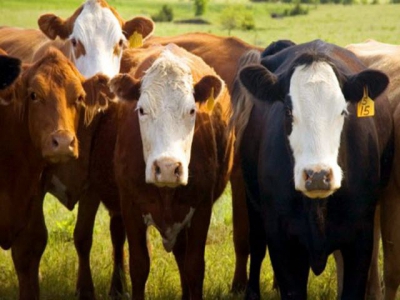Beef checkoff transparency lawsuit proceeds

USDA and NCBA file opening briefs for summary judgment on whether they should release government audit documents.
A lawsuit filed by the Organization for Competitive Markets (OCM) in 2014 has begun its summary judgment phase, with a court decision expected in early spring 2019 as to whether the U.S. Department of Agriculture should be required to release beef checkoff program spending audit and financial records to the public.
"We strongly support a transparent beef checkoff program that works for the hardworking family farmers and ranchers who pay into the program. We have a right to know how our government and its contractors are spending our mandatory assessments,” OCM founding member and Mississippi cattle producer Fred Stokes said.
OCM initially filed a Freedom of Information Act (FOIA) request in 2013 to reveal the activities and spending of the federal beef checkoff program following multiple troubling program audits. A 2010 partial audit of the equivalent of nine days of spending found numerous irregularities, requiring the primary checkoff contractor, the National Cattlemen’s Beef Assn. (NCBA), to return more than $200,000 to the government. OCM said these irregularities included improper payment for expenses, including spousal travel, golf tournaments and prohibited lobbying activity. A full government audit of the program that ensued was mired in controversy, as released documents showed agency “heartburn” and fear of “embarrassment” over an audit report that was “reworked,” “transformed” and “rebooted.”
USDA failed to comply with OCM’s FOIA request, so in 2014, OCM filed the ongoing lawsuit to force USDA to release the government audit documents and financial records. OCM said it and its members are still waiting for answers, adding that since 2014, USDA and NCBA have stalled the release of the information in court. In 2017, the U.S. Government Accountability Office issued a report calling out USDA for its lack of transparency and oversight over the beef checkoff program. The same year, in the courtroom, USDA turned over more than 12,000 pages of financial and audit documents that had been almost completely blacked out and redacted. Legislation considered during the 2018 farm bill debate would require regular auditing, full transparency and accountability of all of commodity checkoff programs.
"With the court ordering that briefing on the merits proceed, USDA and NCBA have run out of delaying tactics that have prevented family farmers and ranchers from having their day in court. The people paying the federally mandated checkoff assessment shouldn't have to spend four years in court to see how the government spends those funds,” Stokes said.
The case has completed the records production and processing phase and is now in the summary judgment phase. On Nov. 14, USDA and NCBA were required to file opening briefs for summary judgment, in which USDA argued that it had turned over all of the documents it is going to. On Jan. 9, 2019, OCM will file opposition to those briefs and a motion to compel USDA to release the records it has withheld. Each party will then get two to three weeks to reply. After the briefing ends in February, the court will decide whether to hold a hearing and then will issue a decision.
"With USDA and NCBA’s complete lack of transparency, they are destroying the integrity of the beef checkoff program. If they have done nothing wrong, they should just release the audit and financial expenditure documents,” Stokes concluded.
Attorneys for The Humane Society of the United States are providing pro bono legal representation in this case in furtherance of their work to reform the beef checkoff program.
Có thể bạn quan tâm
 Cow/calf producers should estimate winter feed needs
Cow/calf producers should estimate winter feed needs Accurate knowledge of average cow size and average weight of operation’s big round bales necessary to predict hay needs and hay feeding strategies.
 Study: Cows fed functional oils have greater milk fat yield in comparison with those fed mo
Study: Cows fed functional oils have greater milk fat yield in comparison with those fed mo Blended functional oils boost milk fat production, support dairy cow production during heat stress and could provide producers an alternative to ionophore use
 Alternative antimicrobial chitosan may boost dairy cow feed efficiency
Alternative antimicrobial chitosan may boost dairy cow feed efficiency Supplementing dairy cow diets with chitosan may boost feed efficiency and increase milk levels of unsaturated fatty acids, however, also adding whole raw soybea